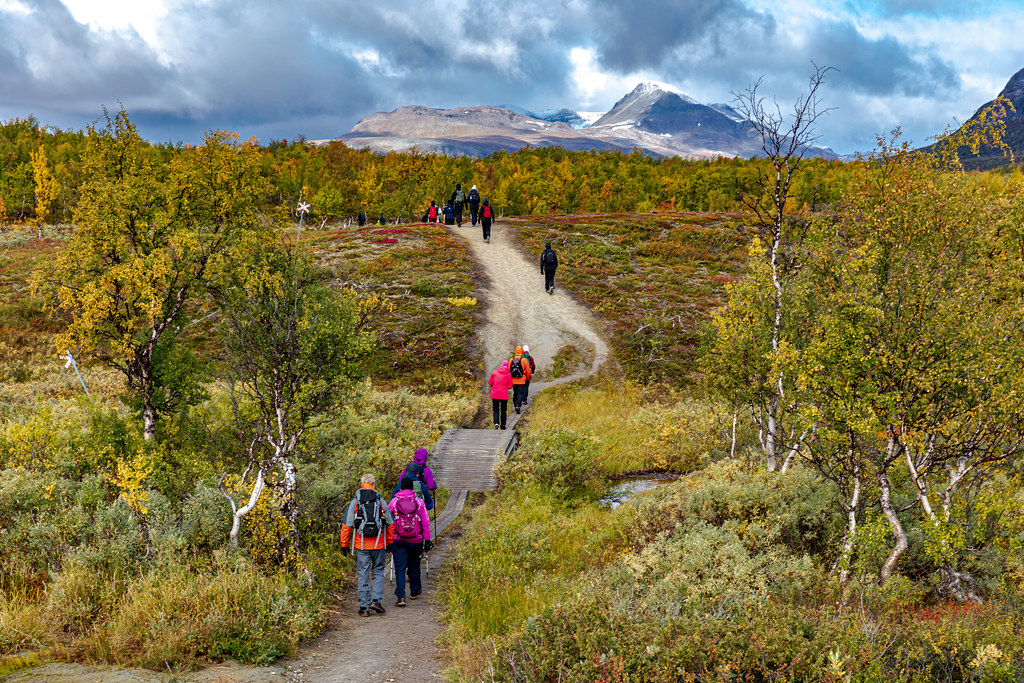Iceland: The Land of Glaciers and Geothermal Springs

Iceland’s landscape looks like something from another planet—towering glaciers, steaming hot springs, and waterfalls that seem to appear out of nowhere. With more than 10,000 glaciers and countless geothermal pools, it’s no wonder that people flock here for renewal. Scientific research has put numbers to this magic: a 2024 study in the Journal of Environmental Psychology found that soaking in Iceland’s geothermal waters can lower stress hormones dramatically, helping visitors feel calmer and more balanced. The Blue Lagoon, the country’s most famous thermal spa, draws millions each year with its mineral-rich waters that help soothe skin and improve overall mood. Iceland’s air is among the cleanest in the world, confirmed by the 2025 World Air Quality Report, which makes just breathing here feel restorative. The country’s population density is extremely low, so you’ll often find yourself completely alone with nature. Strict environmental protections keep the scenery untouched and wild, ensuring these healing landscapes stay pristine for years to come. With these unique features, Iceland stands out as a sanctuary for those seeking to recharge both body and mind.
New Zealand: A Haven of Biodiversity and Outdoor Wellness

New Zealand is a land of contrasts—towering fjords, lush rainforests, and volcanic landscapes all packed into two compact islands. Over 30% of the country is protected as national parks, making it easy for anyone to step into wilderness and leave urban stress behind. According to University of Auckland research in 2023, spending time in New Zealand’s ancient forests lowers blood pressure and lifts mood, showing that the famous “forest bathing” trend has real benefits here. The country’s “clean and green” reputation is well-earned, with the 2024 Environmental Performance Index ranking its air and water quality among the world’s best. Maori culture runs deep in New Zealand, encouraging a mindful and respectful approach to nature that visitors often find inspiring. Activities like kayaking in Fiordland or walking among Rotorua’s steaming geothermal fields offer unique ways to unwind and reconnect. Many travelers say they feel truly alive after spending time outdoors in New Zealand, and it’s not just talk—scientific data backs it up. The government’s strong eco-tourism policies help protect these natural treasures, ensuring restorative experiences for generations.
Costa Rica: The Green Jewel of Central America

Costa Rica is a champion of conservation, with nearly a quarter of its land protected as parks or wildlife reserves. This dedication has paid off—not just for animals, but for people looking to escape and heal. The Costa Rican Institute of Tourism’s 2023 studies found that ecotourism here directly boosts mental health, thanks to the country’s lush rainforests, misty cloud forests, and endless beaches. Costa Rica’s “Pura Vida” philosophy is more than just a saying; it’s a way of life that encourages simplicity, gratitude, and a close connection to nature. The country hosts over 500,000 different species, making it one of the most biodiverse places on Earth. Air quality is consistently high, making a deep breath here feel extra refreshing. Wellness retreats offering yoga, meditation, and nature walks are common, helping visitors tap into the healing power of the environment. Ongoing government reforestation projects mean Costa Rica’s green spaces are only getting healthier, making it a top spot for those wanting to truly unplug and heal.
Norway: Fjords, Forests, and the Healing Power of Nature

Norway’s landscapes are dramatic—steep fjords, endless forests, and crystal-clear lakes stretch as far as the eye can see. The Norwegian tradition of “friluftsliv,” or open-air living, is a core part of daily life, encouraging everyone to get outside and experience nature firsthand. A 2024 Norwegian Institute of Public Health report found that regular time spent in Norway’s outdoors reduces both anxiety and depression, confirming what locals have known for generations. The air here is some of the cleanest in Europe, as reported by the European Environment Agency in 2025, making each breath feel crisp and pure. The country offers countless hiking trails and parks that are easy to access, making it simple to immerse yourself in wilderness. Nature puts on a show year-round, from the midnight sun in summer to the northern lights in winter, creating moments of awe that stay with you long after you leave. Norway’s environmental sustainability efforts ensure these wonders are preserved, so today’s visitors can enjoy the same healing landscapes as future generations. It’s a place that invites you to slow down, breathe deeply, and discover the power of wild places.
Japan: Forest Bathing and Tranquil Landscapes

Japan has turned nature into an art form, weaving forests, gardens, and hot springs into everyday life. Its practice of “shinrin-yoku,” or forest bathing, is more than a trend—it’s backed by research. A 2023 study in Environmental Health and Preventive Medicine showed that forest walks in Japan lower cortisol (the stress hormone) and improve mood. The country’s green spaces, from the ancient forests of Yakushima to Kyoto’s peaceful gardens, are carefully preserved and easily accessible. Urban planners in Japan work hard to keep cities green, with parks and tree-lined streets offering a welcome escape from the bustle. Air quality in Japan has seen steady improvement, and by 2025, cities like Tokyo have ranked among Asia’s cleanest, according to the Global Air Quality Index. Japan’s onsen (natural hot springs) are famous for their healing properties, with mineral-rich waters that soothe both muscles and minds. The country’s blend of tradition and innovation makes every nature encounter feel special, offering visitors a chance to reset in the quiet beauty of the outdoors.
Canada: Vast Wilderness and Clean Air

Canada’s wilderness is legendary, covering forests, mountains, and lakes that seem too vast to ever fully explore. With over 300 national and provincial parks, the country offers millions of hectares of untouched land where people can find peace and solitude. According to Parks Canada’s 2024 research, time spent in these wild spaces leads to lower stress and better cognitive function—a real boost for those feeling burnt out. Air in Canada ranks among the cleanest globally, a fact highlighted by the 2025 Environmental Performance Index, and the country’s freshwater resources are unmatched. Outdoor activities like canoeing in Ontario, hiking in the Rockies, or spotting wildlife in the Yukon give visitors a direct connection to nature’s restorative power. Indigenous communities across Canada teach respect and spiritual connection to the land, adding a deeper dimension to the healing experience. The government’s strong commitment to protecting natural areas ensures that these peaceful refuges remain for all to enjoy. Canada’s wild beauty is a balm for the soul, inviting visitors to slow down and just be.
Switzerland: Alpine Serenity and Clean Environment

Switzerland is famous for its postcard-perfect Alpine scenery—think snow-capped peaks, emerald lakes, and rolling meadows. The Swiss take environmental protection seriously, and it shows: the 2025 European Environment Agency ranks Switzerland among Europe’s cleanest countries for both air and water quality. Alpine air is especially beneficial for respiratory health and energy, as confirmed by a 2023 Swiss Federal Institute of Technology study showing that mountain environments help reduce stress and improve mental clarity. The country’s well-marked hiking trails and high-end wellness resorts make it easy for anyone to get outside and recharge. Many spas here use local thermal waters and alpine herbs to promote healing, blending ancient traditions with modern comfort. Swiss villages and lakesides are peaceful and quiet, providing a perfect escape from city noise. Strict environmental rules mean that Switzerland’s landscapes stay unspoiled, so every visit feels like stepping into a living postcard. The combination of natural beauty and a culture focused on well-being makes Switzerland a standout place for restoration.
Finland: The Land of Lakes and Saunas

Finland is a place where water and forest blend seamlessly into daily life—there are thousands of lakes and vast stretches of unbroken woodland. Sauna culture is at the heart of Finnish wellness, and it’s not just tradition: a 2024 study in the International Journal of Circumpolar Health found that regular sauna use, combined with quick dips in cold lakes, can boost cardiovascular health and melt away stress. Finland’s air is remarkably clean, with the 2025 World Air Quality Report confirming low pollution levels that make breathing here a pleasure. National parks and wilderness areas are open for everyone thanks to “Everyman’s Right,” a law that lets people roam and forage freely. Quiet winters and bright summer nights create a special rhythm, supporting mental health in surprising ways. Nature therapy programs are becoming more popular, helping people treat anxiety and depression by simply spending time in the woods. Finland’s culture and landscape work together to offer a holistic, deeply rooted approach to healing.
Australia: Diverse Ecosystems and Outdoor Healing

Australia packs an incredible range of landscapes into one country, from the colorful reefs of Queensland to the red sands of the Outback. Its national parks shelter rare plants and animals, creating peaceful spots for relaxation and adventure. The Australian Institute of Health and Welfare reported in 2023 that time spent in nature here lowers risk of chronic illness and improves mental well-being. The air along Australia’s coasts is famously clean, and the sunny climate encourages people to get outside and soak up vitamin D. Indigenous Australians have long taught about the spiritual connection to land, adding layers of meaning to every walk or swim. Outdoor activities like snorkeling, bushwalking, or wildlife spotting are not just fun—they’re good for your health. The government’s strong focus on conservation helps keep these special places intact for the future. Australia’s blend of ecosystems and cultures creates an atmosphere where healing comes naturally.
Bhutan: The Himalayan Kingdom of Gross National Happiness

Bhutan stands out with its unique philosophy: Gross National Happiness is more important than economic growth. This shows up everywhere, from the country’s peaceful Himalayan scenery to its careful environmental policies. According to the 2024 Bhutan Environmental Report, more than 70% of the land remains covered by forest—a rare achievement in today’s world. Researchers have found that this commitment to both nature and culture boosts people’s sense of well-being and mental health. Visitors often describe a deep sense of calm while trekking through Bhutan’s hills, meditating in ancient monasteries, or simply breathing the clean mountain air. Industrial development is limited here, which keeps air and water quality high. The country’s way of weaving nature, tradition, and happiness together creates a holistic, healing experience that’s hard to find anywhere else. Bhutan’s approach offers a gentle reminder that when we care for nature, it cares for us in return.



